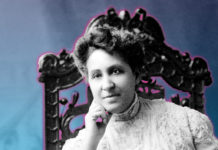The greatest reform we can give schools is independence. Any reform without it isn’t
I often find myself scratching my head wondering why so many black folk extol the virtues of public education.
In the education wars, black and brown educators who criticize the current wave of reform often find themselves rallying with those who can say that public education in this country works. But let’s be clear, blacks aren’t in a position to root for or celebrate the status quo. Likewise, there has never been a time in which blacks shouldn’t have considered themselves reformers. Yet many have incidentally joined an education “party of no.”
Many resist education reform because of the fear of corporate privatization. I for one don’t know of a time when corporations didn’t have an interest in public education or when elites didn’t try to use public institutions for their own interest. Nevertheless, I think many confuse most black reformers’ desire for independence with privatization. I also think the reform movement has leveraged blacks’ desire for independence to advance other goals.
I’ve said on many occasions that education reform is too white to do any good. In addition, black educators don’t want to be controlled by corporate elites or foundation heads.
This is the month when many of us reread Frederick Douglass’s famed ‘What to the Slave on the 4th of July’ speech, which challenges black educators to make clear to traditionalists and reformers the need for independence in education.
John Dewey was right when he said, “Schools are the fundamental method of social progress and reform.” For community and democracy’s sake, we should encourage public schools in which community members bring all of their identities to learn toward shared democratic ends. One day we will realize that we’re all in this together and that learning together will make our country stronger.
But many of us fight for that unfulfilled promise at the expense of student learning. Franklin D. Roosevelt said, “Democracy cannot succeed unless those who express their choice are prepared to choose wisely. The real safeguard of democracy, therefore, is education.” Public education should advance society and its individual members simultaneously. But black communities can’t afford to wait for whites to gentrify schools in the name of democracy to get a good education.
‘What to the Slave’ reminds us that independence is a goal for both people and policy. Blacks should continue to push for public education policy that enables political, economic and educational freedom. We have to find new ways for all communities to self-determine chiefly through the educations we receive.
Charter schools make sense for black communities. Charter schools are independent public institutions that are freed from administrative controls of a centralized, area board, but must still meet broad guidelines or requirements of public schools. Through a charter, parents, teachers, and administrative staff primarily can gain freedom from an elected local board that’s incongruent with their values.
‘What to the Slave’ reminder – The existence of an elected board doesn’t mean democracy is present.
While I’m a staunch supporter of public schools, I also know that private institutions are best able to address a specific culture. Large urban districts simply aren’t built to serve specific cultural or geographic communities. In New Orleans, reform contributed to a reduction of the black teaching workforce. And it felt like schools were taken away from black folk (schools actually were). However, blacks should not treat public schools like we own them – they’re public institutions. When you’re not independent, all public goods can be taken away. New Orleanians know this too well.
Blacks may never campaign for private schools. Our wallets and penchant for public schools would make that a fruitless mission. However, we need more independent/charter schools. The current framework isn’t providing what many blacks really want our schools to deliver – culturally literate citizens. States and districts should grant charters with the explicit aim of recruiting local talent. We need people from the neighborhoods who can deliver the kind of education specific communities need. Consequently, we need organizations that incubate, train and hire local talent and hold themselves accountable to metrics to reflect community standards. Many of the takeover districts have struggled to do this.
One particular sentence in ‘What to the Slave’ always resonates. Douglass wrote, “The eye of the reformer is met with angry flashes, portending disastrous times; but his heart may well beat lighter at the thought that America is young, and that she is still in the impressible stage of her existence.”
I like many see a promise that charter schools can deliver, but I also see inequities waving in the faces of black and brown students every day in public schools. Inadequate funding, harsh suspension and expulsion policies, lack of services for students with special needs and culturally irrelevant curricula are durable, standing problems in most takeover districts. I see waste, fraud, and unsavory practices that led cities to decentralize.
Frederick Douglass would have endorsed the concept of charter schools. However, he would also chide the architects with righteous indignation if they failed to place local leaders, teachers and alumni groups at their helms.
“…your boasted liberty, an unholy license; your national greatness, swelling vanity; your sounds of rejoicing are empty and heartless; your denunciations of tyrants, brass fronted impudence; your shouts of liberty and equality, hollow mockery; your prayers and hymns, your sermons and thanksgivings, with all your religious parade, and solemnity, are, to him, mere bombast, fraud, deception, impiety, and hypocrisy — a thin veil to cover up crimes which would disgrace a nation of savages,” Douglass wrote.
Be it an unresponsive elected school board or a coterie of elites guiding reform in a city, schools have to grow from the soil of the communities they serve. The greatest reform we can give schools is independence. Any reform without it isn’t.
This story was produced by The Hechinger Report, a nonprofit, independent news website focused on inequality and innovation in education. Read more columns by Andre Perry.










